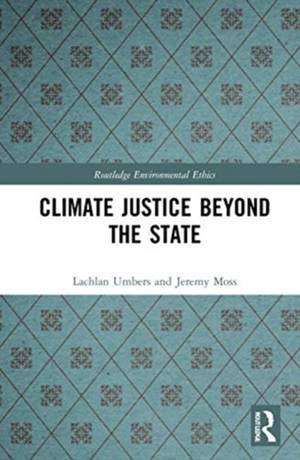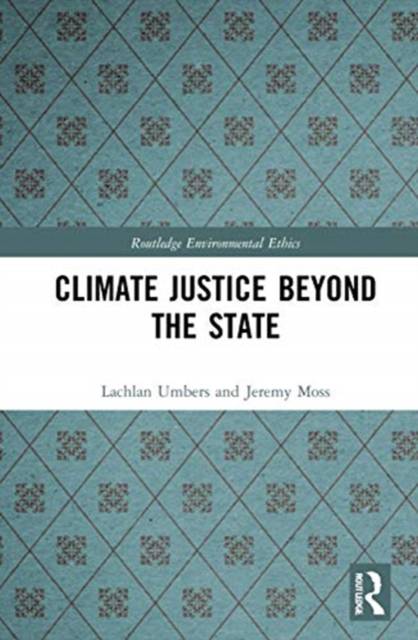
- Retrait gratuit dans votre magasin Club
- 7.000.000 titres dans notre catalogue
- Payer en toute sécurité
- Toujours un magasin près de chez vous
- Retrait gratuit dans votre magasin Club
- 7.000.0000 titres dans notre catalogue
- Payer en toute sécurité
- Toujours un magasin près de chez vous
Description
Virtually every figure in the climate justice literature agrees that states are presently failing to discharge their duties to take action on climate change. Few, however, have attempted to think through what follows from that fact from a moral point of view. In Climate Justice Beyond the State, Lachlan Umbers and Jeremy Moss argue that states' failures to take action on climate change have important implications for the duties of the most important actors states contain within them - sub-national political communities, corporations, and individuals - actors that have been largely neglected in the climate justice literature, to date. Sub-national political communities and corporations, they argue, have duties to immediately, aggressively, and unilaterally reduce their emissions. Individuals, on the other hand, have duties to help promote collective action on climate change. Along the way, they contribute to a range of important contemporary debates, including those over the nature of collective duties, what agents are required to do under conditions of partial compliance, and the requirements of fairness.
Targeted at academic philosophers working on climate justice, this book will also be of great interest to students and scholars of global justice, applied ethics, political philosophy, and environmental humanities.
Spécifications
Parties prenantes
- Auteur(s) :
- Editeur:
Contenu
- Nombre de pages :
- 144
- Langue:
- Anglais
- Collection :
Caractéristiques
- EAN:
- 9780367511340
- Date de parution :
- 31-12-20
- Format:
- Livre relié
- Format numérique:
- Genaaid
- Dimensions :
- 155 mm x 236 mm
- Poids :
- 340 g

Les avis
Nous publions uniquement les avis qui respectent les conditions requises. Consultez nos conditions pour les avis.






